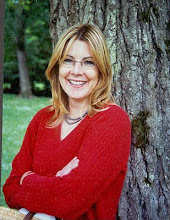(I especially like the literature prize for this year)
Dr Abrahams said the Ig Nobels were meant to poke fun at the frustration faced by scientists in their daily work.
"Their job is to try and make sense of things that nobody else can make any sense of," he said. "Persistence is a big part of it but having a sense of humour about constant failure is a terrifically useful thing in that line of work." He ended the ceremony with the traditional call to researchers around the world: "If you didn't win an Ig Nobel prize tonight - and especially if you did - better luck next year."
The winners
Physics: John Mainstone and the late Thomas Parnell of the University of Queensland, for an experiment that began in the year 1927, in which a glob of congealed black tar has been slowly dripping through a funnel at a rate of around one drop every nine years.
Medicine: Greg A Miller of Missouri for inventing Neuticles - artificial replacement testicles for dogs
Literature: The internet entrepreneurs of Nigeria, for using email to distribute a bold series of short stories, thus introducing millions of readers to a cast of rich characters, each of whom requires just a small amount of money so as to obtain access to the great wealth they will share with you.
Peace: Claire Rind and Peter Simmons of Newcastle University for electrically monitoring the activity of a locust's brain cell while it was watching selected highlights from the film Star Wars.
Biology: An international team of scientists and perfumiers for smelling and cataloguing the peculiar odours produced by 131 different species of frogs when the frogs were feeling stressed.
Economics: Gauri Nanda of the Massachusetts Institute of Technology, for inventing an alarm clock that runs away and hides, thus ensuring that people get out of bed, theoretically adding many productive hours to the work day.
Nutrition: Yoshiro Nakamats of Tokyo for photographing and then analysing every meal he has eaten over 34 years.
Chemistry: Edward Cussler of the University of Minnesota and Brian Gettelfinger of the University of Minnesota and the University of Wisconsin, for settling the scientific question: can people swim faster in syrup or in water?
Agricultural history: James Watson of Massey University, New Zealand, for his scholarly study, The Significance of Mr Richard Buckley's Exploding Trousers.
Fluid dynamics: Victor Benno Meyer-Rochow of International University Bremen, Germany, and the University of Oulu, Finland; and Jozsef Gal of Lorand Eotvos University, Hungary, for using basic principles of physics to calculate the pressure that builds up inside a penguin, as detailed in their report Pressures Produced When Penguins Pooh - Calculations on Avian Defecation.
http://www.guardian.co.uk/science/story/0,3605,1586951,00.html
Friday, October 07, 2005
Subscribe to:
Post Comments (Atom)


4 comments:
Sam, you have a whole new look! See what happens when I stay away from blogging for a few days to catch up on my writing!
As to the awards, hmmm…I’m not sure which takes the cake, the artificial dog testicles (poor little pooch!) or the guy who photographed and analyzed every meal for 34 years (yeesh--get a life, mister!)
Somehow my life seems so much richer and more normal after reading that! LOL
Thanks for the kind comments about the blog!
Being a techno retard, it took me the better part of half an hour to get my links on straight, and then I had to have a clock - I have a thing about clocks and calendars - a sort of 'you can't have too many of them' sort of thing. And that took more time. So thank you for the compliments! Much appreciated!
Tee Hee Hee!! Did some guy really photograph everything he ate for 34 years?
I bet he was an interesting man. Can you imagine having sex with anybody who would do that? His poor wife!
I see your blog got all dark and moody!
Hi Karens,
Yes, I've gone over to the dark side, lol.
It will change again, I'm sure!
Post a Comment